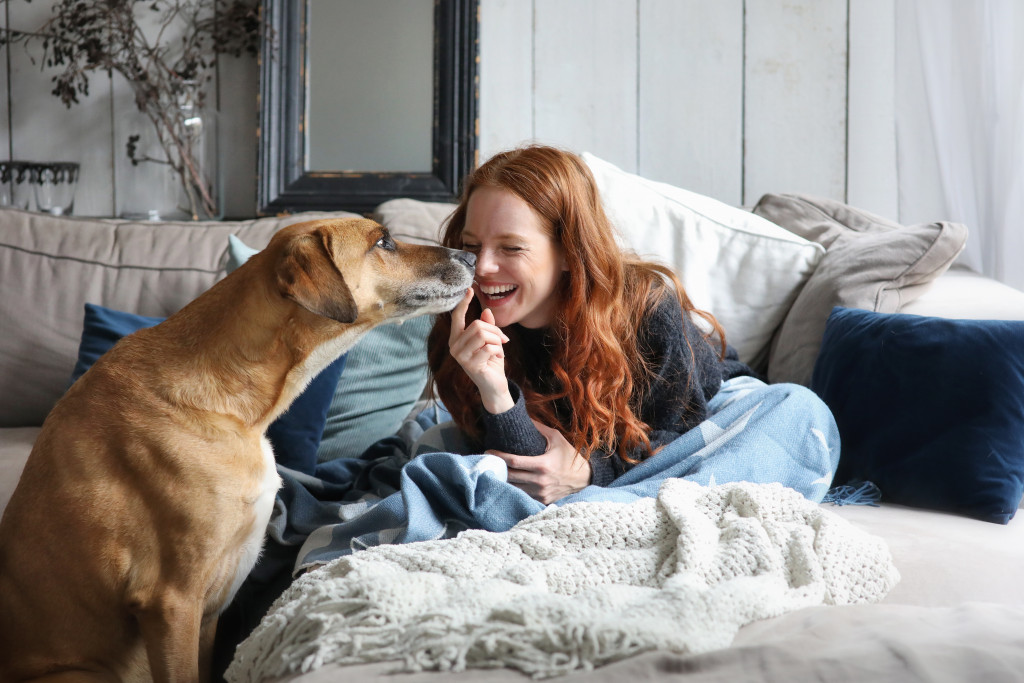Disclaimer: What Liberty Ate. This site provides food and drink content for informational purposes only.
Is your pet making you feel better? Perhaps seeing and touching her calms you and keeps you sane amid all the problems and stressors you are encountering. If so, then you need to keep your pet as healthy as you are.
Half of the dogs and cats in the U.S. are overweight. This means that approximately 80 million pets are prone to developing serious diseases such as diabetes, arthritis, high blood pressure, and kidney and heart disease, and cancer. When we see a fat dog or cat, we all gush with cuteness and marvel at its “chunkiness,” as they call it. But an obese animal is not good and if your pet dog is alarmingly overweight, you should exercise all efforts to make him lose weight.
Since you are in charge of your dog’s diet and activities, it’s within your control if and how your dog loses weight. You can take him to the vet and assess his overall condition, but check out these tips to get you started on your dog’s weight loss journey.
Calculate Calorie Intake
Every diet, human or animal, starts with controlling calorie intake. This will determine what and how much food to give to your pet. Common feeding guides on pet food packaging won’t entirely help you because these are formulated mostly for active adult dogs that are unspayed or un-neutered. If you have an older indoor dog that is already spayed or neutered and spends most of his time on your lap, you will need a better guide.
This is why it’s important to take him to the vet, so he can calculate the number of calories that your dog can have each day. The number will depend on several factors, such as weight, age, and probably breed. Mostly vets go by this formula: divide pet’s weight by 2.2, multiply this by 30 and then add 70. But this is just a general average and you should still let the vet decide which formula is suited for your dog.
Measure the Meals
A lot of pet owners are guilty of not using a measuring cup when feeding their pets. Most of us simply fill the bowl straight from the can or bag. This can get tricky if there’s more than one household feeding the dog or if your dog gets treats often and regularly from other people.
According to the Association for Pet Obesity Prevention, even as few as ten extra tiny kibbles daily will add up enough for your pet to gain a pound a year (this applies to small dogs). Change this habit now and use a measuring cup from now on.
Be Strategic in Giving Treats
Just like in regular meals, a lot of us are too guilty of giving our dogs too many treats, especially during puppy dog training. But we can’t give those treats anytime they want or every time they look at us with those sad puppy dog eyes. We have to include those treats in the overall calorie count they should maintain per day.
Also, it’s important to choose the type of treats we give our dogs. Most dog treats are like “calorie grenades” that have terribly high sugar content. Next time you go shopping, choose treats that have low-calories or no sugar. As a healthy substitute, you can also give him veggies and fruits as treats. Popular choices are cucumbers, celery, baby carrots, green beans, sliced apples, or bananas.
Along with this, it’s important to tell the people in your household and anyone who comes in to visit to refrain from giving treats to your dog. Explain that your beloved is on a diet and it’s for his health that he feeds on fewer treats than the usual.
Give Him a Workout

Just like with humans, diet and exercise work together for effective weight loss. Try maintaining even just 20-30 minutes of brisk walking daily. This will already improve your dog’s cardiovascular health, boost immune function, and lessen any behavioral problems that he may have. And because you’re the one who’s going to take the dog for walks and runs, you will give yourself exercise too. It’s a win-win for both of you.
Get Smart With Supplements
A daily serving of omega-3 fatty acid supplements can do wonders for your dog’s overall health. These powerful and potent fish oils work in both humans and dogs in treating and preventing numerous diseases. Another supplement to try is L-carnation, which can help not only encourage weight loss but also promote lean muscle growth as well. But get clearance from your vet before giving any kind of supplements to your dog.
By helping your dog lose weight, you are saving him from developing life-threatening diseases and helping him have a long and satisfying life. Take your dog to the vet regularly to make sure that his weight is always monitored.

